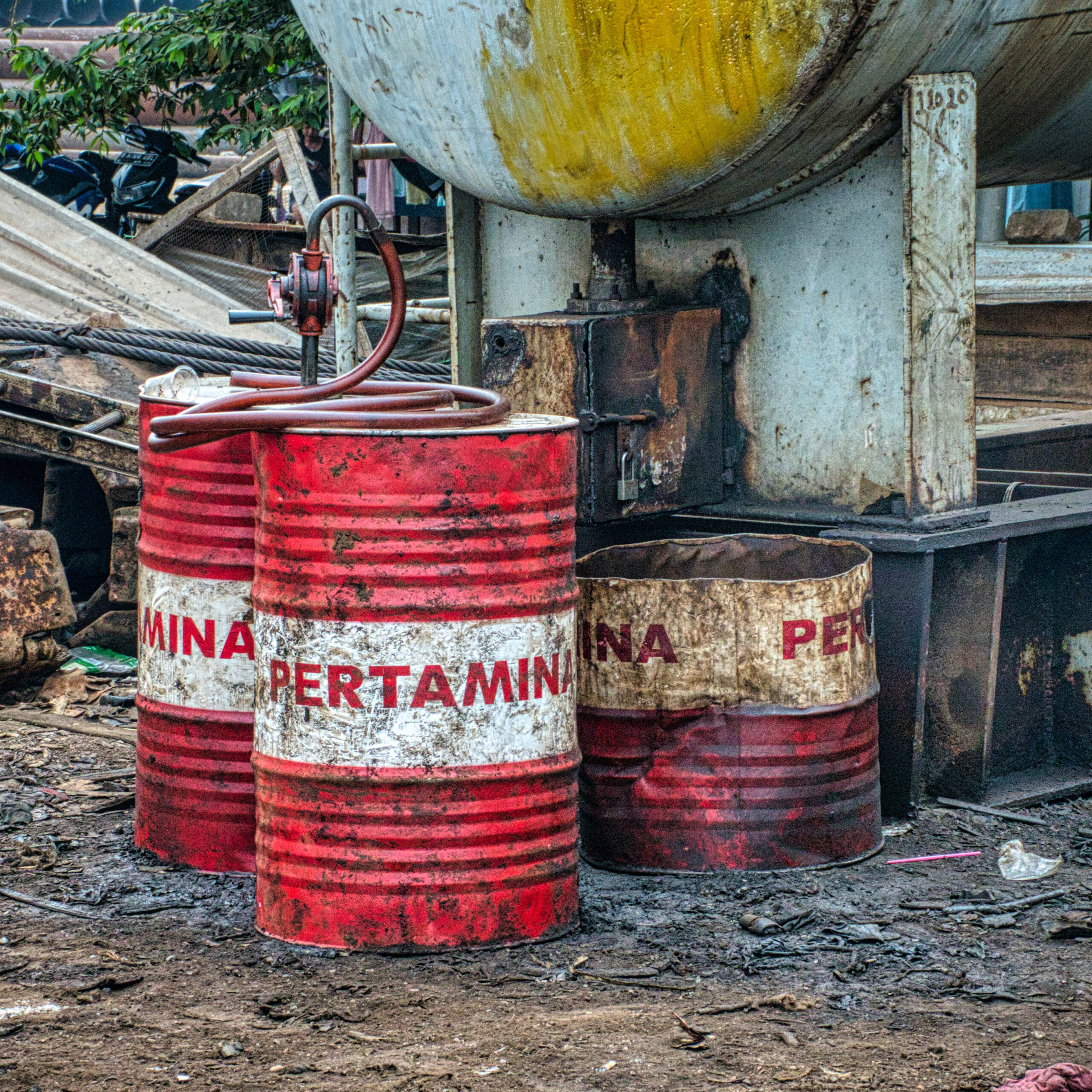Unsurprisingly, Californians are also using other states as junkyards.
CalMatters recently reported that “California regulations may stop at the border, but its waste does not.”
“Since 2010, about 43 percent of California-only hazardous waste has been transported out of state – much of it to Arizona and Utah landfills,” the publication reported.
While toxic waste is going out, petroleum products are rolling in from elsewhere. Gov. Gavin Newsom has said “California needs to move beyond oil.” And it has been, as crude production is in a four-decade decline.
Californians want to live in a state free of oil refining but they’re happy to buy and use the many items made from crude, and seem to have no problem letting other states do the grubby work of turning petroleum into useful products. Just a few decades ago, there were about 50 oil refineries in the state – today there are 14. This didn’t happen by accident.
Thanks to their obsession with recycling, Californians have “offshored” their plastic refuse, and in the process likely contributed to plastic pollution in the oceans. Follow the trail: Until Beijing halted the practice in 2018, California and other states sent their used plastic intended for recycling to China, where the stewardship of the garbage stream is often sloppy. Science magazine found some years ago that China loses 1.3 million to 3.5 million metric tons of plastic to the oceans every year, “largely due to mismanaged waste,” the Los Angeles Times says. Other research shows that roughly 90 percent of all plastic in the oceans is carried there by “the top 10 rivers with the highest loads” of plastic debris, six of them in China. Expertise in forensic science is not required to conclude that millions of plastic water bottles bobbing at sea are there because Californians didn’t want them buried in landfills across the state.
When some Palo Alto citizens wondered last year where their recycling ended up after they’d dropped it in their blue cans, NBC News reported that “the answer wasn’t pretty.” The “concerned” residents learned that roughly 60% is shipped abroad, “mainly to Asia, with next to no transparency about its fate.”
“If you keep stuff out of landfill but just dump it in Laos, that’s not achieving a good goal,” said Martin Bourque of the Ecology Center in Berkeley, a group that advised Palo Alto in its pursuit of transparency. “That’s not what the whole idea was of recycling.”
One of those rivers that carries a heavy load of plastic to the sea, the 2,700 mile-long Mekong, starts in China and flows through Laos.
Another Golden State fixation, electric vehicles, also shows how Californians don’t mind environmental messes elsewhere as long as they can demonstrate their green bona fides at home. EVs are essentially enormous batteries on wheels. These power storage units require materials that have to be mined. The resources don’t fall from the sky nor are they blown about by the breeze. And most of the mining, which the eco-lobby considers dirty, is done outside the U.S., often in unstable nations where environmental protections are lax and in some cases child and forced labor is used.
California’s Potemkin environmentalism is not a recent phenomenon. Max Schulz, then director of the Manhattan Institute’s Center for Energy Policy and the Environment, documented in 2008 how the state’s “celebrated green economy produces pollution elsewhere,” as well as its reliance on nearby states for electricity because Californians had become unwilling to build power plants for themselves.
Schulz also noted that “largely because of regulations and government mandates to use expensive renewable sources of power … heavy manufacturing and other energy-intensive industries” were fleeing in large numbers.
“Yet Californians still enjoy the fruits of those manufacturing industries – driving cars built in the Midwest and the South, importing chemicals and resins and paints and plastics produced elsewhere, and flying on jumbo jets manufactured in places like Everett, Washington. California can pretend to have controlled energy consumption, but it has just displaced it.”
For all the self-congratulatory rallies, ever-present virtue signaling, and claims of political leadership, California’s green crusade is in reality (tremendously expensive) performative art.
Kerry Jackson is a fellow with the Center for California Reform at the Pacific Research Institute.

